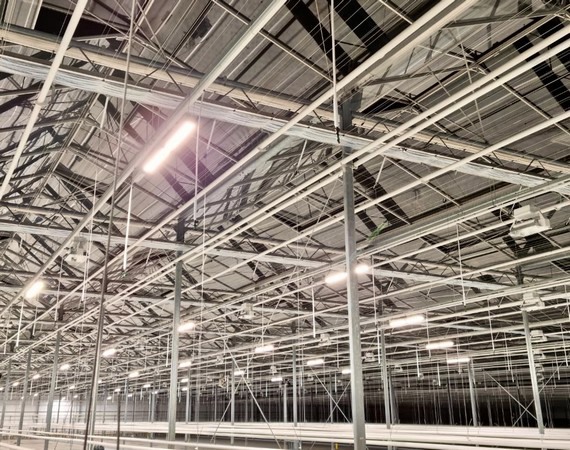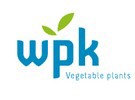The newest, joint cultivation location of Westlandse Plantenkwekerij (hereafter WPK) and P. van Geest at Aaksterlaan 10 in 's-Gravenzande has been enriched with hybrid lighting: a combination of LED and HPS. Thanks to the professional efforts of various parties, the former tomato nursery was converted into a plant nursery within four months. Because quality, flexibility, and durability are of high value to WPK and P. van Geest, this unique form of lighting could not be left out. How exactly does this form of lighting work? And what is so interesting about it? Erik van der Arend, one of the directors at WPK, and Dennis and Leo, the professionals involved in this project from Fluence, explain.

What preceded
Prior to the renovation of the joint cultivation location of WPK and P. van Geest in 's-Gravenzande, a professional team was faced with a number of decisions, including a very important one: the lighting. Many different options were literally held up to the light. After all, the lighting has to meet a long list of requirements. From a sustainability point of view, it has to contribute to the mission of making the world a little greener every day, and at the same time, it is extremely important to be able to guarantee optimum quality. After thorough research and various tests, the choice fell on Fluence's hybrid lighting solution. Hybrid lighting consists of a combination of LED and HPS (also called Son-T) lighting. Both types of light can be on simultaneously or separately.
The "golden combination" called hybrid lighting
"In some parts of the year, extra heat in the greenhouse is not desirable from a cultivation point of view. Thanks to hybrid lighting, at those times, we are able to light exclusively with LEDs," says Erik. Leo adds: "WPK and P. van Geest enjoy a good level of lighting as standard and can light the crop in a sustainable way. In the spring, summer and autumn, they can do this in an even more sustainable way, namely by only using LED lighting. LED uses less electricity because electricity is converted into light more efficiently."
"The interesting thing about the lighting chosen by Fluence is the right degree of cooling. The luminaire doesn't get very hot. Moreover, the spectrum is widely applicable," Erik explains. "For WPK and P. van Geest this offers flexibility. HPS and the used white broad spectrum of the LED lamps are not only suitable for cucumber or tomato plants, but a much broader range of crops," adds Dennis. Leo is also very positive about the results of the hybrid form of lighting. "At WPK and P. van Geest we opted for a broad, white spectrum. This is comparable to the sunlight spectrum. The plant itself will, therefore, not quickly notice the difference between natural light and LED light. Both forms of light mix well with each other. By choosing the right spectrum, you will gain in the form of better plant quality and model and faster plant development. Customers of WPK and P. van Geest can therefore rely on a uniform product with a consistent quality that seamlessly links up with the customer's own growing conditions - particularly in winter," says Leo.
Of course, like any long-term choice, this switch brings challenges and requires extra attention. "Boundaries have to be rediscovered, including in terms of cultivation technique. But well, you are WPK and P. van Geest for that. They have the qualities that are needed to achieve this. The people here love the profession and see this as a wonderful learning process," says Dennis.

For more information: Westlandse Plantenkwekerij
[email protected]
www.wpk.nl
